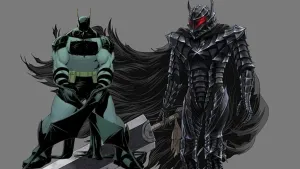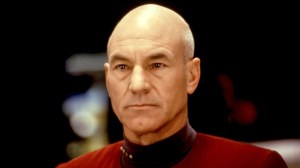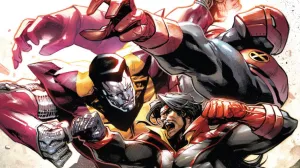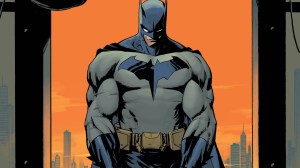Thor: Ragnarok has been a hit with fans largely because of its humor, its heart, and the feeling that it’s taking audiences on a fast-paced adventure through the epic fantasy corner of the Marvel Cinematic Universe.
Videos by ComicBook.com
What might be lost beneath the high adventure and good humor is that Thor: Ragnarok is also a reflection on a lot of themes seen in today’s political discourse, and, through Asgard’s ultimate fate, a reminder that borders on a map are never as important as the people who live within them.
At the center of these themes is the villain Hela, who basically just wants to make Asgard great again. Writers Eric Pearson, Craig Kyle, Christopher Yost, and director Taika Waititi took some liberties with the Asgardian god of death’s origin, allowing her to become a representation of the return of nationalism to the political forefront.
Hela is the daughter of Odin, the Allfather of Asgard. She was around when Asgard had dreams of an empire and was willing to achieve those dreams through military conquest and the subjugation of other peoples. It was during this period that, through the use of force, the other nine realms were brought into the fold.
Nobody else in Asgard seems to remember this era because, when things got too bloody, Odin traded conquest for diplomacy as his chief political maneuver and did his best let the Asgardians violent history be forgotten, just like his daughter.
However, the precarious peace that Odin had built falls apart thanks to Loki, who enacts one deception too many in his quest for political power. The death of Odin allows Hela to return and for her to reinstate an “Asgard First” policy in the realm.
And who does Hela choose to be her executioner? Skurge, a working-class Asgardian who wants nothing more than to be recognized and for his life to be given a sense of purpose. The scene in Thor: Ragnarok during which Hela asks Skurge about himself is perhaps the most telling in the film. When Skurge begins telling Hela about how his father worked as a stone mason, she cuts him off quickly. She’s not truly interested in how blue Skurge’s collar is. However, she seizes upon Skurge’s desire to prove himself as a true Asgardian and offers to let him become part of something much larger than himself.
When Hela takes control of Asgard, it becomes the duty of Thor, the next generation of Asgardian leadership, to set things right. Thor was born royalty, and through his journey to Asgard and the loss of his hammer he comes to better understand how those outside of the elite class live and that his strength doesn’t come his father’s gift to him, but from within himself.
Thor then assembles a coalition of allies who all have an interest in protecting Asgard: Loki, a gifted politician who finds a new sense responsibility, Valkyrie, a veteran and patriot who became disillusioned with the ruling class, Bruce Banner, the smartest person in the room who is now just angry all of the time, and Heimdall, a person of color who is leading the resistance on the homefront, as well as Korg, Miek, and a few of the other refugees from Sakaar who make the trip back to Asgard.
The themes are driven home in the film’s climax. Hela draws her power from Asgard, the literal place as defined by the land that exists within its borders, which is, again, not an uncommon nationalistic point of view.
The lesson driven home to Thor repeatedly is that Asgard is a people, not a place. The moral being that a nation is never more important that the people who live in it. That realization is what allows Thor to make the sacrifice that ultimately ends Hela’s threat. He allows Asgard the nation to be destroyed in order to save Asgard the people. Asgard becomes a refugee people, with Korg lyrically describing what a new, more-inclusive Asgard could look like just before the landmass itself explodes.
Thor: Ragnarok is a hopeful tale for those who see nationalism an undesirable political philosophy. In the end, Skurge sees Hela’s manipulations for what are, and makes a true warrior’s sacrifice, Loki goes from using his cunning and guile only to accrue power for himself to using it to help overthrow a true demagogue. The Asgardian nation and its leadership are more diverse than ever before, and, despite losing the soil beneath their feet, they are stronger for it.
Thor: Ragnarok is now playing in theaters.








